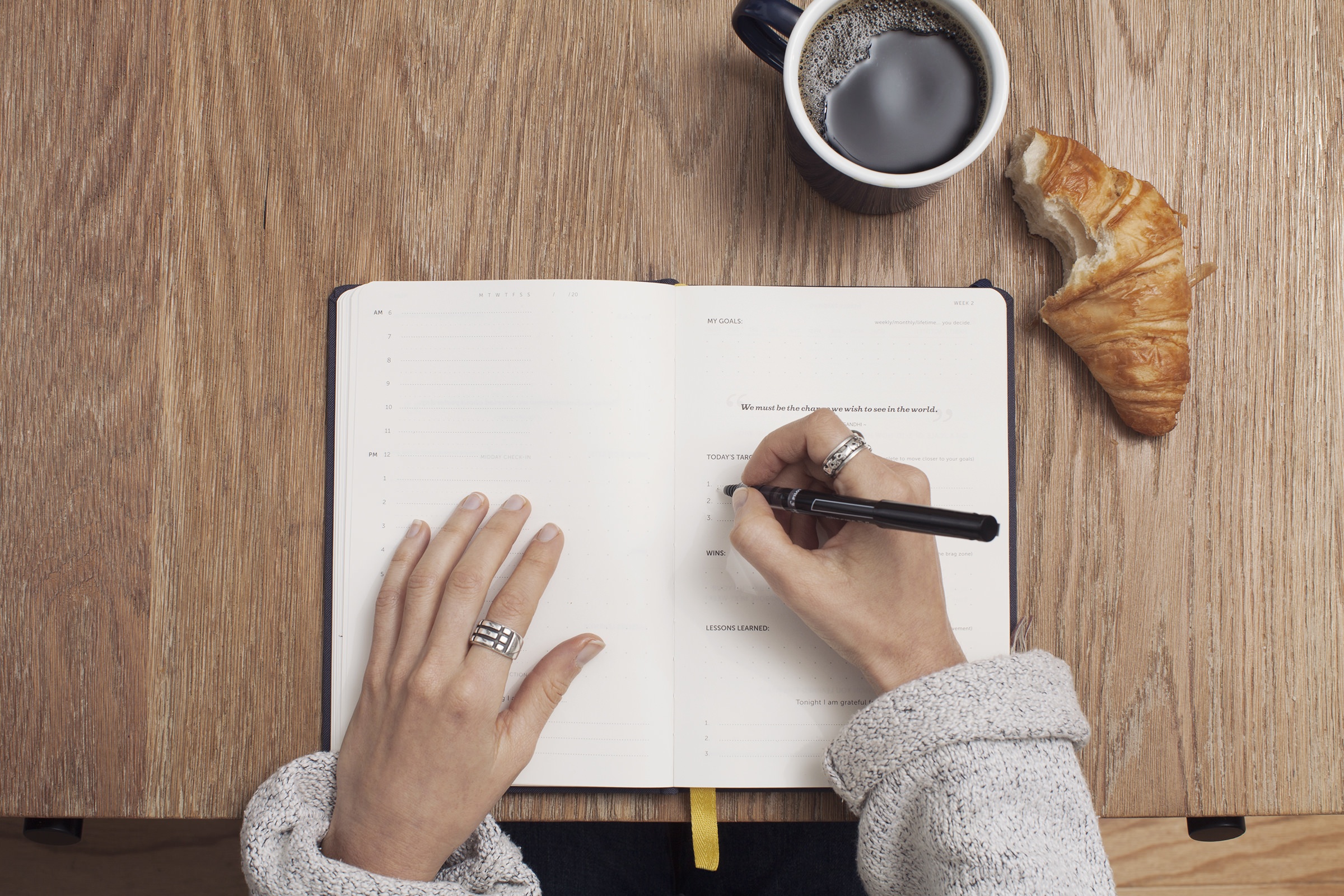7 Ways to Achieve More While Working Less
I spend about five hours a day slacking off.
Really: I spend that much time doing stuff I enjoy, that isn’t on a task list anywhere. I walk through the beautiful university campus near my house—during the workday. I cook for pleasure. I lay around on my daughter’s bed reading while she does her homework.
You’re probably thinking, “I could never do that!! Because I have to (insert 500 good reasons)!”
Here’s the truth: I slack off not because I’m lazy or don’t care about being productive. In fact, I’ve found that slacking off makes me more productive because I slack strategically—meaning that I take breaks at designated times, for regular intervals, in ways that sharpen my focus when I sit back down to work.
Strategic slacking has enabled me to dramatically increase both the quality of my work and the amount I get done in a given day.
It increases productivity because we don’t think or work or create at the same rate throughout the day.
How fast we work doesn’t just depend on the difficulty of what we are working on; it also depends on how well our brain is functioning. Is it well-nourished? Free from stress? Rested and ready to go? To a large extent, how we answer those questions is within our control.
Here are eight ways to achieve more while working less.
1. Designate time for “THINK WORK.”

Late morning is an excellent time for most people to tackle their most difficult work, as alertness tends to be high and willpower is not yet depleted.
I do work that takes a lot of focus at a standing desk that has a small treadmill under it, on a computer that doesn’t have an email application. Walking slowly while I work has a lot of positive outcomes; one of them is that it more or less chains me to my desk. I put my phone in do-not-disturb mode and close any unnecessary applications or windows that are open on my computer. I put on my noise-canceling headphones and play my “listen while writing” playlist.
2. Take “recess” throughout the day.

For more advice on productivity, sign up for free, daily messages from Shine.
One survey discovered that very productive employees tend to take 17 minutes of break time for every 52 minutes of work. Feel free to do something fun during your break, like watch a funny video or eat a piece of chocolate (research shows that these activities boost productivity by 10-12 percent). Have a snack and drink a glass of water—both things also increase focus.
On my breaks I’ll often read an interesting article, but not one that will be hard to put down after 10-15 minutes. Doing something of interest energizes people for both the current task and whatever it is that they work on next. And taking a real lunch break (away from a computer!) decreases fatigue and increases afternoon productivity. I try to eat mindfully for a few minutes, really paying attention to the texture and taste of the food in my mouth. After about five minutes, I let my mind wander (rather than trying to keep it focused on my food). Staring into space enhances creativity; boredom is often the precursor for brilliance.
3. Change things up in the afternoon.

Our self-discipline and ability to focus is like a muscle in that it fatigues over the course of a day. This makes afternoons an ideal time to catch up with colleagues or schedule meetings and appointments.
But afternoons are also a great time to brainstorm solutions to problems or do other creative work. That’s because we are often most innovative when our intellect is fatigued. So when we’re running out of steam for focused work, and we don’t have the energy to censor our thoughts too closely, it’s an opportune time to shift gears. (Think you do your most innovative work late at night? Perhaps it is because you are too tired to focus. Mind-wandering often leads to creative insight.)
4. Don’t forget to take recess! Repeat after me: Taking breaks increases productivity.

In the afternoon, my recess is an exercise break. Usually, I take my dog, Buster, for a hike. Getting out into nature is key. (This can be a patch of grass or a few trees—it doesn’t have to be Walden Pond.) When we are sick, a view of nature can help us heal faster. When we are distracted, the sight of nature can help us regain our focus. And when we are stressed, images of a natural landscape can slow our heart rates, relax our muscles, and help us feel calm again. Moreover, natural light in the afternoon delays melatonin production, which can keep us feeling alert for longer.
As a bonus, pet a dog while you are hiking, if you have one (or see one): Petting a dog increases serotonin and dopamine levels (in humans), hormones that improve happiness and fight depression.
5. Have a really good game plan.

Here’s the key to an effective task list: Tell your brain WHEN you will complete a task. Scheduling an unfinished task can make a huge difference in our ability to focus. When we don’t know when we will do something on our list, our thoughts will typically wander from whatever it is we are doing to our undone tasks. Our unconscious isn’t nagging us to do the task at hand, but rather to make a plan to get it done. Once we have a plan, we can stop worrying about how much we have to do.
One of the lesser known precursors to getting into “flow” at work is knowing where you are in your work flow.
“That constant awareness of what is next is what keeps you focused,” Mihaly Csikszentmihalyi, professor of psychology and management at Claremont Graduate University and author of Flow: The Psychology of Optimal Experience told Entrepreneur magazine. “That’s where the engagement comes from.”
Before I leave my desk each day I clean up my task list and schedule the next day’s tasks.
6. Establish a predictable—and technology-free—bedtime routine.

You might think that bedtime routines are for toddlers, but sleep experts recommend them for adults, too, to cue our minds that we are shifting into sleep mode.
I make myself a cup of herbal tea to drink in the evening while I read. While the water brews, I take my vitamins, including Omega-3s, which lubricate the brain, reduce inflammation, and generally contribute to our health and happiness.
At 8:30 or 9:00 pm, I shut off my email, social media, and cell phone for the evening. My bedtime routine includes listening to an entertaining audiobook while I put clothes away and neaten up the house. Even though I only listen for 10 or 15 minutes, pairing cleaning up with reading motivates me to actually clean up. I also make sure everything I need for the morning is in its place.
At 9:15 pm, I make a quick pit stop in the hot tub and have a little downtime with my hubby. Our body temperature naturally dips before we go to sleep, and when we soak in a hot tub, our temperature rises—but the rapid cool-down immediately afterward signals to our body that we are headed to sleepy town. I stay in the tub for just 10-15 minutes, and get out before I break a sweat. Bonus: One study showed that taking a hot bath daily for eight weeks was more effective than an anti-depressant at fighting anxiety!
Here’s the truth: You will not fulfill your potential in any of these realms unless you get the sleep your body, brain, and spirit need.
7. Get enough sleep!
I know, I know, you don’t have time to get seven or eight hours. Maybe you wish you could get more sleep, but you just can’t find a way to put sleep above your other priorities.
So what are your other priorities? Your health? Your happiness? Productivity and success at work? Raising happy and healthy children? Here’s the truth: You will not fulfill your potential in any of these realms unless you get the sleep your body, brain, and spirit need.
A mountain of research shows that sleep affects virtually every aspect of our lives, including our intelligence, our satisfaction with our relationships, our moods, our athletic performance, and our ability to learn and retain information. Even 20 minutes of sleep deprivation three days in a row can dramatically lower your IQ.
Now, it’s your turn. Go ahead: Be a (strategic) slacker!
Read next: 3 Tricks to Help You Get In the Productivity Zone
Shine is supported by members like you. When you buy through links on our site, we may earn an affiliate commission. See our affiliate disclosure for more info.

